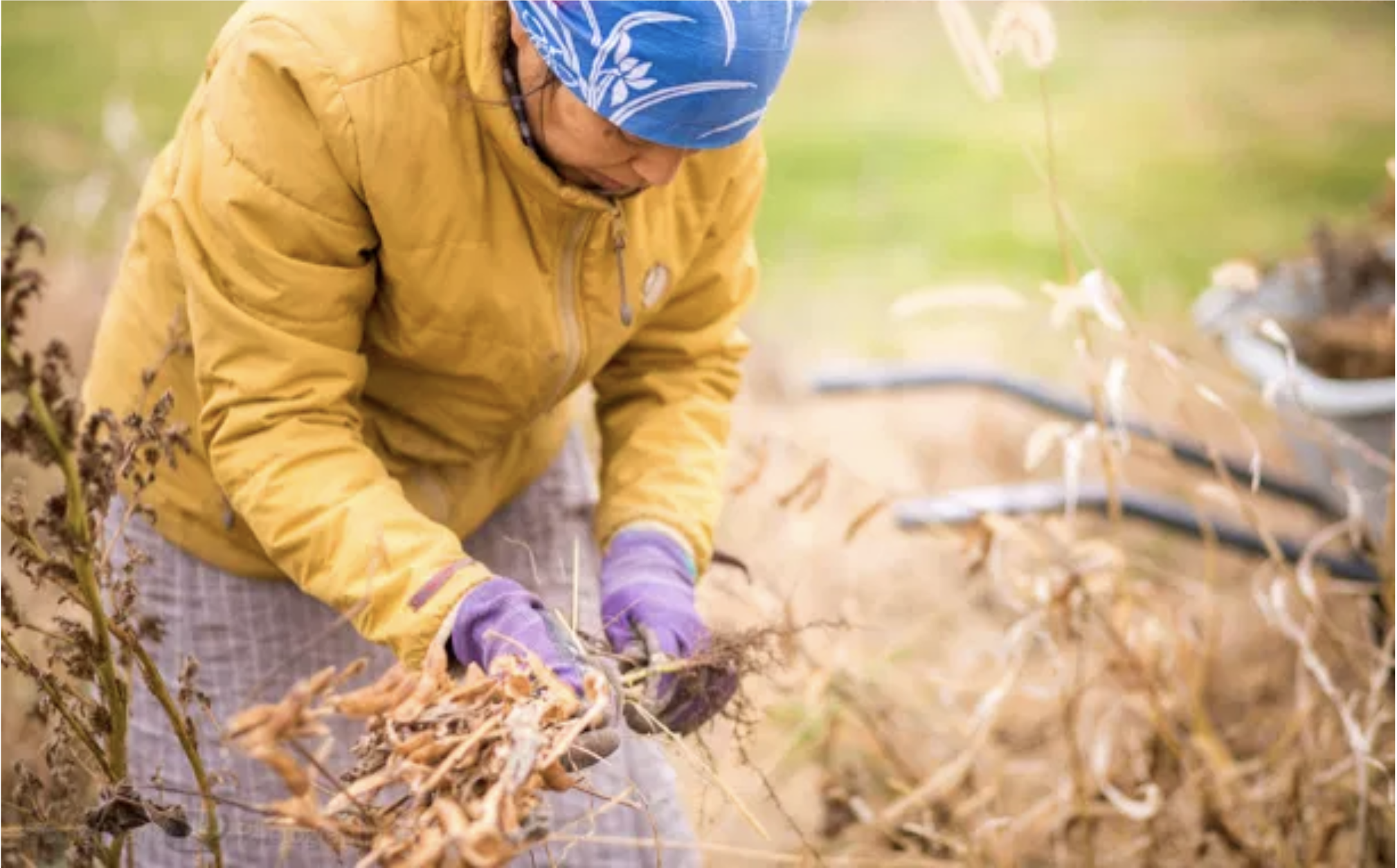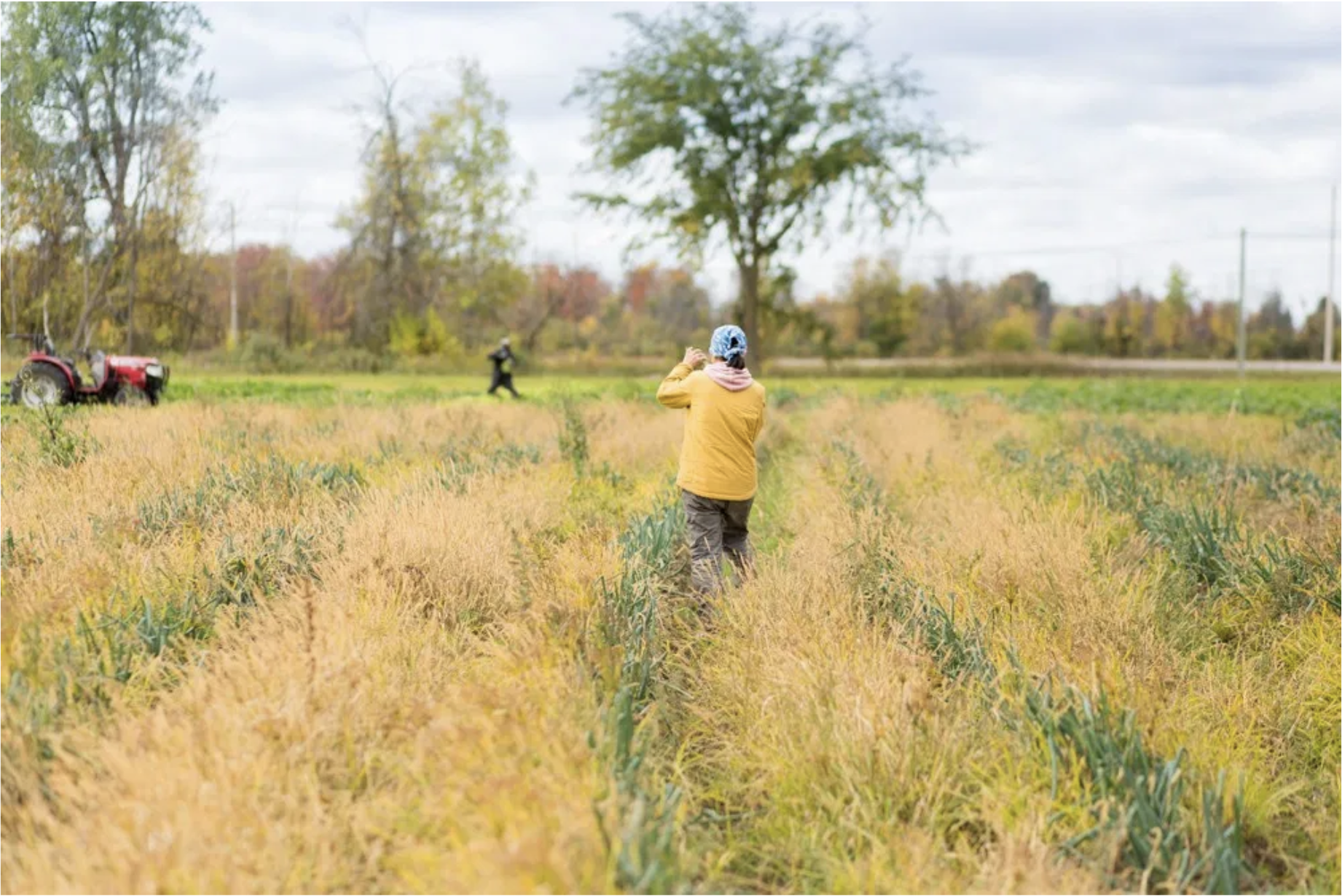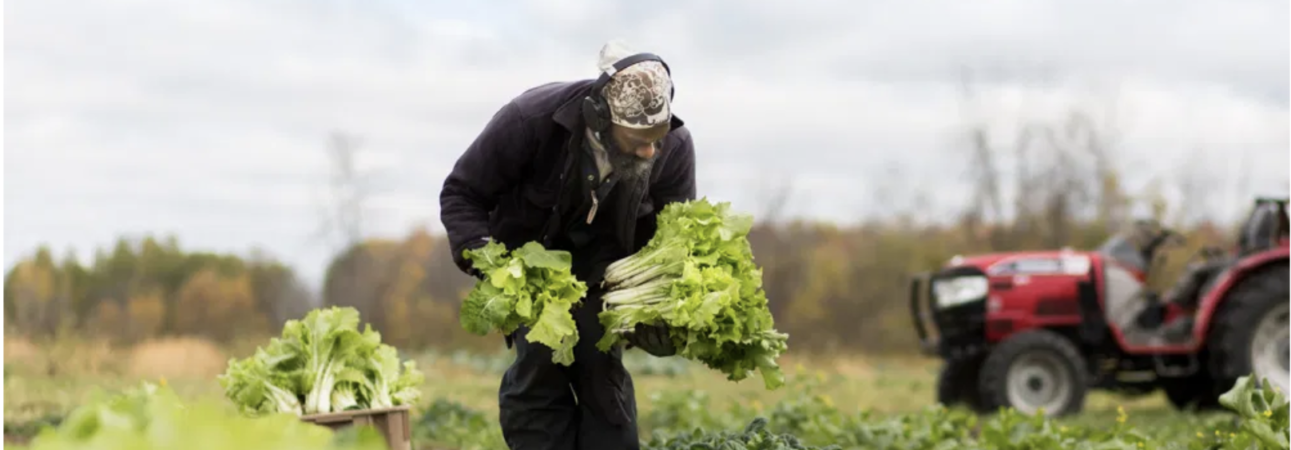When markets don’t feel safe anymore
Local farmers, Colin Samuels and Kumiko Watanabe, have been working hard to develop alternative pandemic revenue streams to cope with the coronavirus pandemic as they avoid Ottawa farmer markets.
In June, the owners of Jambican Studio Gardens, a local organic farm, made the challenging decision to stop selling at the Old Ottawa East’s Farmers’ Market and homeschool their six-year-old daughter to protect Samuels’ 94-year-old mother who has underlying health conditions.
“If the market hadn’t opened up to day-of sales, if it had kept to online ordering, online payment and pick-up I would have stayed a little bit longer,” says Samuels.
“I found it’s hard to control people especially, if you’re just telling everyone you’re going to fine them. Fines aren’t the best methods of control in my opinion. The managing of people is why we were feeling unsafe.”
For the husband-and-wife team, this decision has meant innovating Jambican’s business model to survive the pandemic and they have embraced the change.
Stuff we didn’t think we could do we’re now being forced to do.
Colin Samuels, Jambican Studio Gardens
“I’m not a pandemic hater in the sense that it’s forcing us to be bigger human beings. Stuff we didn’t think we could do we’re now being forced to do. It doesn’t make it easy but it’s taking us places we probably wouldn’t willingly go,” Samuels says.
Pre-pandemic, Jambican had two primary streams of income: selling produce at local farmer markets and running its community supported agriculture (CSA) program, which is essentially a vegetable delivery service.
The program, which is an alternative socio-economic model of food distribution adopted by many local operations to connect directly to consumers, has helped supplement the loss of business from farmer markets during the pandemic because Jambican sold out of 2020 subscriptions for its main harvest season.
Customizing orders
Beyond its successful CSA program, Jambican has also reconfigured itself to accept orders for specific produce.
“Now we’re harvesting for specific people, so we have a list for the people we’re harvesting for tomorrow, who we’re delivering to, and we’ve got specific orders for specific stuff which actually isn’t bad.
It’s different from how we did it before, but it’s not bad. COVID-19 is encouraging me to find different ways of operating and I don’t mind that, I do miss the talking from market but we’ve got more customers than ever; we’ve doubled it, at least, compared to last year,” says Samuels.
Samuels credits the onslaught of interest from the community to an increase in public consciousness about the risk of crowded supermarkets as people seek reliable, low-contact, or no-contact nutritious groceries.

Lifting each other up
Apart from developing their relationships with customers, Samuels says that Jambican has also serendipitously been able to foster its partnership with Moo Shu Ice Cream, a local ice creamery that has previously used Jambican’s produce for the production of its ice cream.
Since Sept. 19 Moo Shu Ice Cream has been stocking Jambican’s produce at its location in the Glebe every weekend to help the organic farm safely access a larger local market during the quarantine.
Liz Mok, Moo Shu’s owner, introduced the idea of selling Jambican’s vegetable produce from a small-batch ice cream store because Mok believes it is important to support local food producers during this crisis.
“It’s important to support local because it means I’m getting the best ingredients, the best quality of product, and am financially supporting my community,” Mok said.
“With any obstruction, you meet there are ways around. It’s not the end of the world. Sometimes, it feels like the end of the world, but there are a whole lot of really brilliant people doing excellent, wonderful work, there’s a lot of innovation coming.”
Colin Samuels, Jambican Studio Gardens
Mok says Jambican is unique for the produce it grows. Unlike most suppliers, Jambican grows a variety of Asian greens due to Watanabe’s desire to promote traditional Japanese food.
“Oftentimes people who are racialized are not able to eat local while eating the food that they find comforting from their own cuisine. In that way, the local food movement can be exclusionary to people who are of colour,” Mok says.
“Part of my values is to eat local, so I either have to choose to eat whiter dishes if I want to eat local, or if I want to eat Chinese food I have to settle because there’s no real in-between option there. So I was really excited about the produce Colin and Kuniko were growing, I obviously found a lot of value in what they do.”
According to Mok, it is Moo Shu Ice Cream’s intersection of Asian culinary and farm-to-table influences that inspired this COVID-19 partnership.
“I thought we are already in that intersection when it comes to ice cream. Why can we not be in that intersection when it comes to, you know, grocery and savoury foods as well,” says Mok.

Supporting local
Sarah Maria Carere purchases a majority of her groceries locally and has enjoyed the fruits of Jambican and Moo Shu’s partnership.
As a consumer, Carere says she feels obligated to spend her money with purpose by supporting local vendors.
“To me, supporting local farms and industries just makes more sense. The product normally is of much greater quality, because small-business owners tend to pour their entire heart into their products,” Carere says.
Back in her hometown of Guelph, Ont. Carere knows a lot of people who sell and frequent the Guelph Farmer’s Market, including her family. The market has influenced her value of local agriculture as Caere grew up knowing many of the vendors.
When you support your community it supports you back.
– Sarah Maria Carereho, customer
“If we spend our money within our own community, it will enhance our economy and help the people who are working hard to create good products, not just to become wealthy,” Carere says. “We’ll also get products that are better quality, better tasting, and ethically sourced. When you support your community it supports you back.”
For Samuels, these changes are hopefully just the beginning of a new chapter for Jambican and other local growers.
“With any obstruction, you meet there are ways around. It’s not the end of the world. Sometimes, it feels like the end of the world, but there are a whole lot of really brilliant people doing excellent, wonderful work, there’s a lot of innovation coming.”
